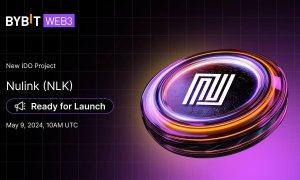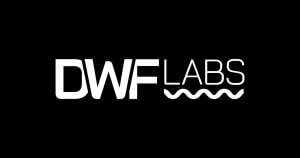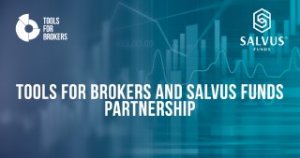AngelBlock Review
AngelBlock is leading the way in the decentralized finance (DeFi) world by providing a new way for companies to raise funds without having to give up control of their assets. The platform deploys a non-custodial, protocol-based fundraising infrastructure designed for token-based raises, making it more open, decentralized, and accessible to everyone.

AngelBlock’s system is built around smart contracts that safeguard investors’ interests and assure startups that the funds they require will be readily available. This results in a platform tailored for web3 fundraising, providing a reliable and clear investment setting for both investors and new companies.
At its core, AngelBlock comprises a suite of tools that ensure the safety and efficiency of DeFi and crypto transactions, including on-chain vesting, cap table management, and token distribution systems. The overarching goal is to establish a broad, self-sufficient, and decentralized network that sets a global standard for fundraising, vesting, and token distribution in a manner that is secure, transparent, and truly native to the cryptocurrency ethos.
AngelBlock serves both investors and startups:
- For Investors: It provides a platform to invest in blockchain innovations, balancing the interests of large and small contributors. Due diligence is streamlined, saving time and effort.
- For Startups: It offers milestone-based funding, reducing the reliance on constant fundraising and allowing teams to focus on growth and development. The platform also connects startups with knowledgeable investors who can provide more than just capital.
History
The inception of AngelBlock traces back to May 2020, when Alex Strzesniewski, inspired by the hype around DeFi, developed a protocol tailored to the Web3 fundraising landscape. With a rich background in crypto dating back to 2016, including running a mid-sized, EU-based regulated centralized exchange, Strzesniewski sought to return to his ideological roots in crypto with AngelBlock. His motivation stemmed from the limitations and inefficiencies encountered in traditional and crypto fundraising avenues, such as opaque deals in Telegram groups, equity-based crowdfunding platforms, and centralized launchpads with questionable practices. AngelBlock was born out of a desire to fill the glaring void in transparent and decentralized infrastructure for token-based deals.
Wider Access for Both Startups and Investors
AngelBlock opens up the investment world to smaller investors, allowing them to get involved in funding web3 startups—a space previously dominated by big venture capital (VC) funds or larger investors. Through AngelBlock, these smaller investors not only get a chance to invest but also receive the same protections that traditional VC investors enjoy.
This is not just beneficial for small investors; it’s a significant advantage for startups too. Instead of having to rely on a handful of large tech VC groups who have the power to set strict investment terms, startups can now attract a broader base of smaller investors.
Since its MVP launch in October 2022, AngelBlock has marked several milestones:
- Initial launch on Ethereum with plans for a multichain protocol.
- Introduction of cross-chain solutions and partnerships, notably with Aleph Zero.
- Successful token raises, including a notable $4 million raise and the first cross-chain raise with Script Network.
- Introduction of the Dope A** NFT collection, offering exclusive benefits and contributing significantly to the platform’s revenue.
- Implementation of security audits and the introduction of a post-raise governance process, enhancing the platform’s credibility and functionality.
- Launch of the Startup Grant Program, rewarding innovation and facilitating further token fundraising on the platform.
- Plans to transition to using THOL as the required currency for paying gas fees to streamline the user experience.
- Introduction of Badges NFTs to enhance governance and project accountability.
Team, Advisors, and Investors
The AngelBlock team is led by individuals with deep roots in the blockchain, legal, and technological sectors, offering a robust foundation for their vision of revolutionizing token-based fundraising and investments. Below is a summary of the core team members and their roles:
- Alex Strzesniewski serves as the Founder & CEO, bringing a wealth of experience from the crypto and blockchain industry. He served previously as a former crypto-fiat exchange executive and advisor to successful companies like Gamerhash and Aleph Zero.
- Marcin Majchrzak, the Co-founder & CTO, is highlighted for his early start in entrepreneurship and contributions to blockchain development. His passion for open-source projects, denationalization of currencies, and distributed computing aligns with AngelBlock’s mission to develop decentralized fundraising solutions.
- Dawid Wasilewski, the Co-founder & CLO, brings a strong legal background specializing in commercial law with a focus on international regulations of new technologies, including FinTech and Blockchain. His expertise in regulatory compliance and risk management plays a crucial role in navigating the complex legal landscape of crypto investments.
- Advisory Board: The inclusion of 10 advisors from various blockchain funds and organizations in the AngelBlock advisory board expands the project’s network and resources. These advisors bring a wealth of knowledge, experience, and perspectives from different areas of the blockchain and DeFi sectors, offering strategic guidance and support that can help AngelBlock navigate challenges and seize opportunities.
- Investors: The team is further supported by a diverse group of investors who have collectively contributed approximately $4 million to AngelBlock. This group includes entities like R-930 Capital, Space Capital, Diamond Atlas Capital, and notable figures in the crypto space such as Teddy Cleps and co-founders of Aleph Zero, Matt Niemerg, and Antoni Zolciak. Their involvement provides AngelBlock with not only financial backing but also a broad spectrum of expertise and networks within the blockchain and cryptocurrency sectors.
Value Proposition
AngelBlock’s business model and value proposition are centered around creating a more secure, transparent, and efficient platform for token-based fundraising and investment. Here’s a breakdown of the key components of their approach:
- On-chain, verifiable, and trustless raises secured by governance mechanisms, ensuring the legitimacy and fulfillment of fundraising campaigns.
- A token-based fundraising, vesting, and distribution infrastructure that streamlines the entire process for startups and investors.
- An open-source framework for full transparency and trust, allowing for community scrutiny and contribution.
The protocol is designed to run natively on Ethereum and it plans for multichain functionality to expand its utility across different blockchain ecosystems. By incorporating milestone-based and time-based models for capital payout, AngelBlock minimizes the risks associated with token-based fundraising, such as non-delivery and scams.
Customer Segments, Relationships, and Channels
AngelBlock targets early-stage startups and investors (both individual and institutional) as its primary customer segments. The platform facilitates relationships between these two groups through a variety of channels, including business development efforts, industry conferences, social media, and direct engagement via platforms like Telegram and Discord. AngelBlock leverages its industry experience and networks to attract and retain users, focusing on creating value for both startups seeking funding and investors looking for promising opportunities.
AngelBlock’s key partnership with Aleph Zero highlights its strategy of forming strong alliances. This collaboration brings grant funding and helps expand their network. It also shows AngelBlock’s dedication to adopting new blockchain technologies, like Aleph Zero’s privacy-improving tools, into their system. Additionally, the partnership is in action, with AngelBlock gearing up to run fundraising campaigns for projects in the Aleph Zero ecosystem, beginning with DRKVRS.
Cost Structure and Revenue Streams
- AngelBlock incurs costs primarily in software development, marketing, relationship building, and employee compensation. As for revenue, the platform initially operates without charging any fees but plans to implement a fee structure in the future. This fee structure is designed to support the platform’s operations, reward validators for their due diligence, and sustain the ecosystem through purchases of THOL tokens for treasury replenishment.
- Validators, initially exclusively AngelBlock but later including pre-approved third parties, play a critical role in ensuring the integrity of projects and the overall ecosystem. Their compensation is tied to the achievement of milestones and the completion of vesting periods, aligning their interests with those of investors and contributing to a self-regulating, decentralized due diligence process.
- AngelBlock’s tokenomics revolves around its utility token, $THOL, setting up an advanced ecosystem aimed at encouraging participation, safeguarding investments, and boosting community involvement. Here’s a brief analysis of its tokenomics structure, utility features, and strategic plans, alongside a comparison with its competitors.
Tokenomics and Utility of $THOL
- Ticker: $THOL
- Total Supply: 400,000,000
- Price: ~$0.0517
$THOL plays a pivotal role in the AngelBlock ecosystem, serving as the backbone for various platform functionalities. Its utility extends beyond mere transactions to include:
- Staking: Users can stake $THOL to earn a deflationary Annual Percentage Yield (APY), incentivizing long-term holding and participation.
- Access to Exclusive Deals: Staking tiers determine priority in deal flows and ticket sizes, rewarding more significant contributors with better opportunities.
- Community Engagement: Through the Ambassador program and partnerships with third-party services like Zealy, $THOL is used to incentivize community building and active support for listed startups.
- Governance and Protocol Interaction: $THOL holders can influence the platform’s development and governance, and in the future, $THOL will be required for all protocol interactions, including participating in raises and other key functionalities.
Additional Token Elements
AngelBlock introduces several innovative elements to enrich its tokenomics and user engagement:
- NFTs and Badges: AngelBlock leverages ERC721 and ERC1155 tokens to integrate unique rewards and recognition within its ecosystem, providing tangible assets that evolve over time.
- Roadmap Goals: Short-term plans include enabling gas payments in $THOL, enhancing on-chain communication, and integrating with the Aleph bridge for cross-chain functionality.
Competitors and Differentiation
AngelBlock operates in a competitive landscape with notable players like DAOMaker, Republic.co, AngelList, and various crypto launchpads. However, it differentiates itself through Transparency and Security: Unlike its competitors, which often act as centralized custodians of funds, AngelBlock’s protocol-driven approach ensures that all fundraising processes are transparent, secure, and decentralized. This minimizes the risks of hacks and fraud, providing investors with a level of protection based on technological mechanisms rather than trust alone.
Roadmap and Conclusion
AngelBlock is setting the stage for a more inclusive, transparent, and effective Web3 fundraising ecosystem. The roadmap for 2024 and beyond is ambitious, focusing on further enhancing the investment flow, ensuring the stability and security of the Aleph Zero bridge, and hosting more successful raises.
AngelBlock’s approach to tokenomics and its platform’s functionality reflects a deep understanding of the challenges and opportunities within the crypto fundraising and investment space. By prioritizing security, transparency, and community engagement, AngelBlock positions itself as a leader in offering a compelling alternative to traditional and crypto-native fundraising solutions.
AngelBlock’s focus on utilizing $THOL for a broad range of platform interactions not only ensures the token’s utility but also aligns with the broader trend of creating more integrated and user-centric blockchain ecosystems. As the platform evolves, its emphasis on multichain functionality and innovative features like NFTs and badges will likely attract a diverse user base, from individual investors to institutional partners.









